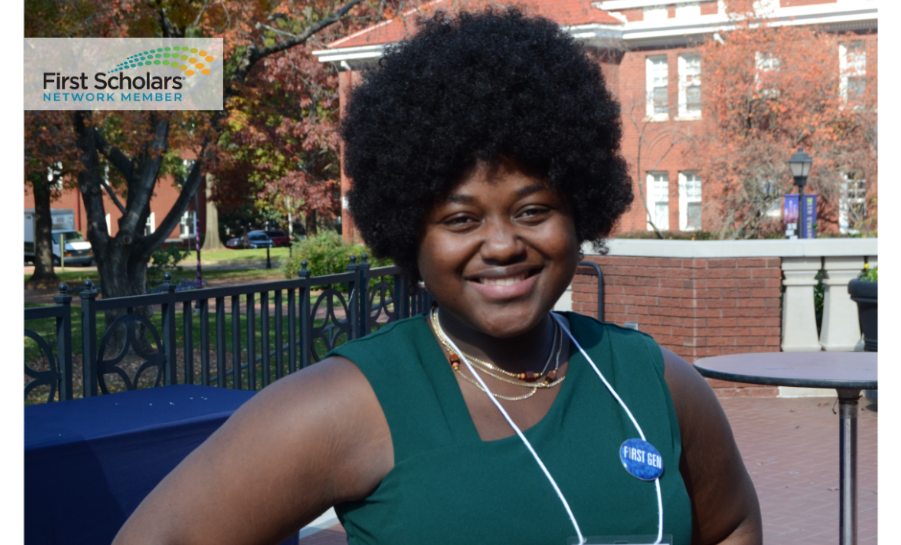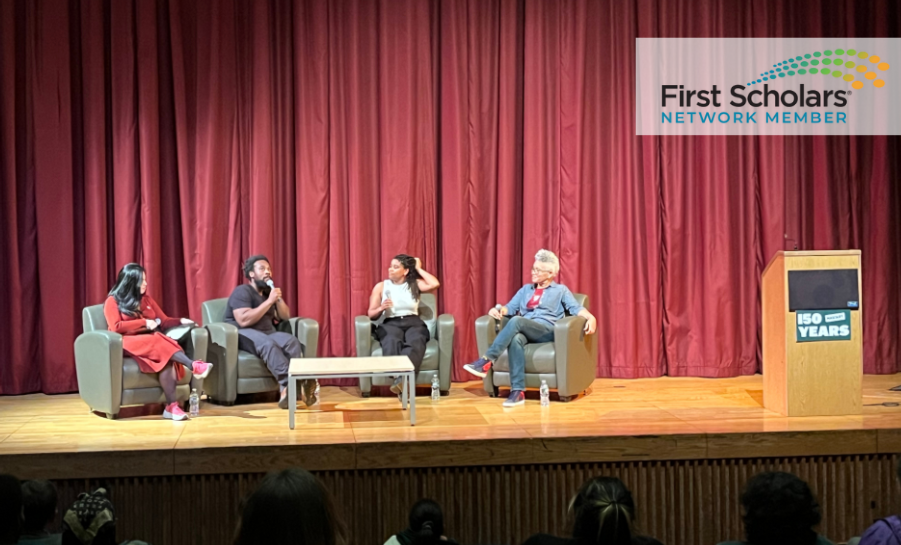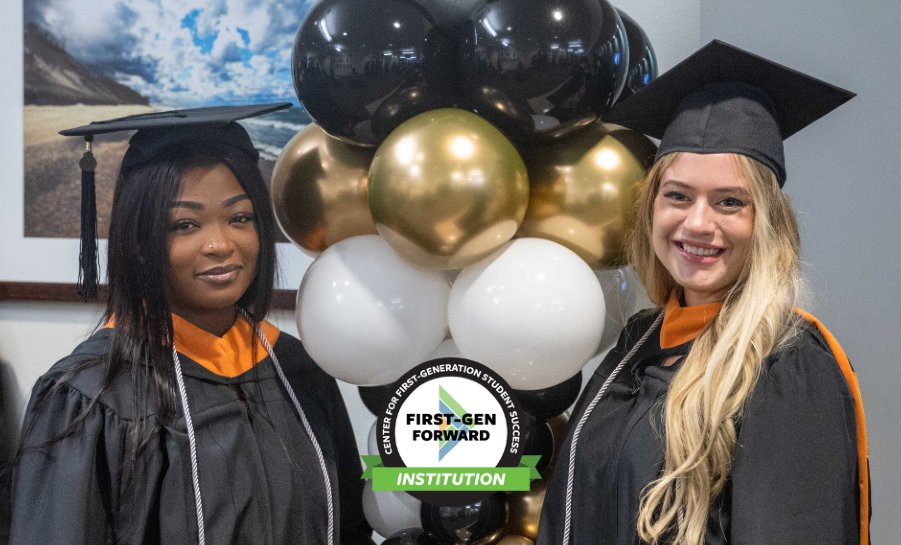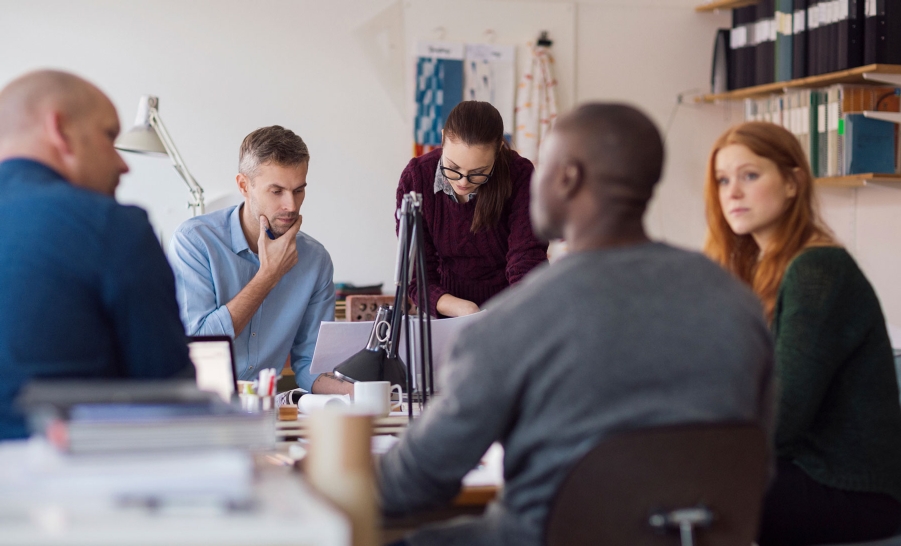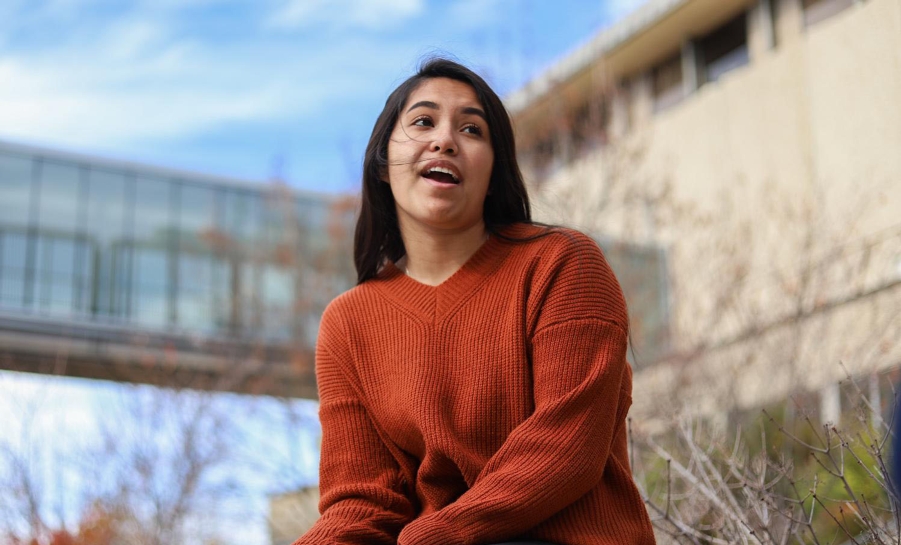Using Self-Regulated Learning Content to Support First-Generation Student Success: Early Findings from a Pilot Study
Amy Collins-Warfield, University of Minnesota Rochester / FirstGen Forward / November 17, 2023
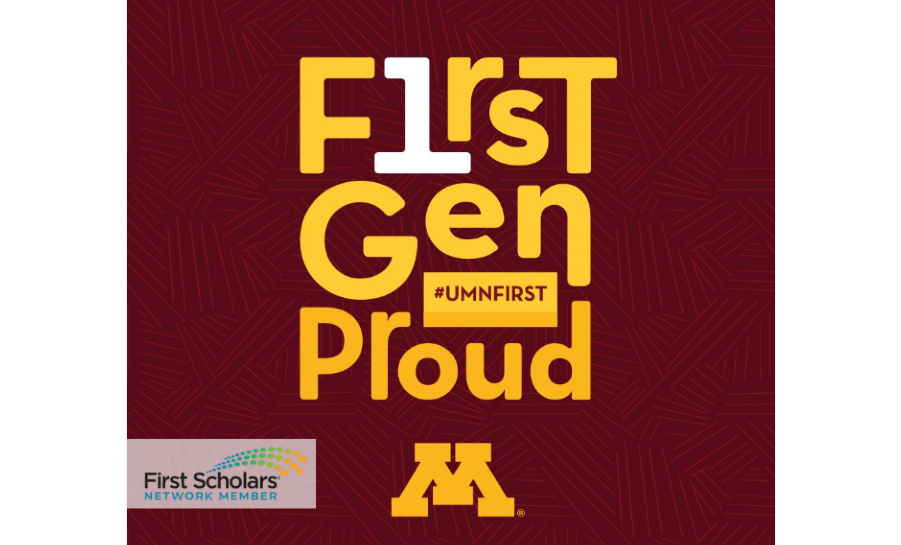
Faculty at the University of Minnesota Rochester (UMR) are continually testing innovative teaching and learning approaches to help students attain academic success. On our small, health-sciences focused campus, we strive to develop effective pedagogies and tools that promote and sustain student engagement and active learning. As a UMR faculty member (and a first-generation student myself), I have particular interest in first-generation student success, as approximately 40% of our 568 health sciences students identify as first-generation.
A Student-Ready Approach
In my 15 years of college teaching, it has been my observation that some faculty assume students come to college as fully independent learners. However, as Tia Brown McNair and colleagues (2016) point out, there has never been a time when students were fully prepared for college. In my research and teaching, I adopt a student-ready approach (McNair et al., 2016), meaning that I look for proactive ways to address students’ needs and eliminate unnecessary barriers to their success. One way to do this is to explicitly teach students the academic skills and habits of mind they will need to be successful in college.
With this goal in mind, in the 2022-23 academic year, I incorporated self-regulated learning (SRL) content into my courses. This included three sections of my first-year seminar in the fall semester and the single section of my special topics course on SRL in the spring semester. Although my classes are not limited to first-generation students, 31 of 78 students (40%) who took these courses identified as first-generation.
What is Self-Regulated Learning?
Self-regulated learning is the process of identifying, monitoring, and adjusting your thoughts, feelings, and behaviors so you can attain your academic goals. A self-regulated learner is someone who plans the steps needed to reach their goals, implements and monitors the strategies in their plan, and evaluates and reflects on the outcomes. My SRL course content includes three main areas: habits of mind, learning strategies, and self-regulation in action. A summary of topics can be found in Table 1.
Table 1. Self-regulated Learning Topics
|
Habits of Mind (Plan) |
Learning Strategies (Implement) |
Self-Regulation in Action (Evaluate) |
|
Growth versus fixed mindset |
How we learn |
Understanding motivation |
|
Creating effective habits |
Note-taking strategies |
Identifying and addressing causes of procrastination |
|
Time management and prioritization |
General reading strategies |
Self-talk and success |
|
Understanding faculty expectations |
Reading scholarly articles |
Responding to failure |
|
Asking for help effectively |
Test-taking and test anxiety |
Resilience and wellbeing |
Possible Benefits of SRL for First-Generation Students
Throughout the semester, students completed both in-class activities and reflective homework assignments to help them apply the course content. I am currently reviewing this course-related data to assess the impact of this curriculum on first-generation students. My initial analysis suggests students demonstrated personal growth, including developing more positive self-talk and stronger habits of mind. For example, first-generation students wrote the following in response to the prompt “At first I thought ___, but now I know __”:
-
“At first I thought asking for help was a weakness, but now I know it is more of a strength.”
-
“At first I thought I wasn’t capable of being a good student, but now I know all I needed was new techniques”
-
“At first I thought people were smart naturally and I wasn’t, but now I know failure and trial and error are a form of learning in itself.”
Overall, first-generation students felt the SRL content was valuable and helped them be successful. For example, students said:
-
“Giving students the necessary tools on how to learn and be a college student is beneficial to the college and the student.”
-
“I feel like both a better student and a better person after taking it. You helped alleviate so much of my negative self-view when it came to being a student.”
-
“As a senior, and a first-generation student, I had to learn a lot of these topics on my own. If I [had] been able to take this class the first year of my college career, I would have done so much better the past four years.”
The emerging results of this pilot study suggest that intentionally incorporating self-regulated learning topics into the curriculum could benefit first-generation student success. Specifically, these topics might encourage student help-seeking, promote a growth mindset, and support student mental health. In the current academic year (2023-24), I am working with other faculty to expand this content into other course sections and assess the outcomes, with the goal of sharing these findings in a future publication. My hope is that by adopting this student-ready approach, we can prepare our first-generation students to be successful in our health sciences degree program and their future careers.
(IRB Statement: this research was conducted under the University of Minnesota IRB protocol #0908S71702)
Reference:
McNair, T. B., Albertine, S. L., Cooper, M. A., McDonald, N. L., & Major, T. (2016). Becoming a student-ready college: A new culture of leadership for student success. Jossey-Bass.
